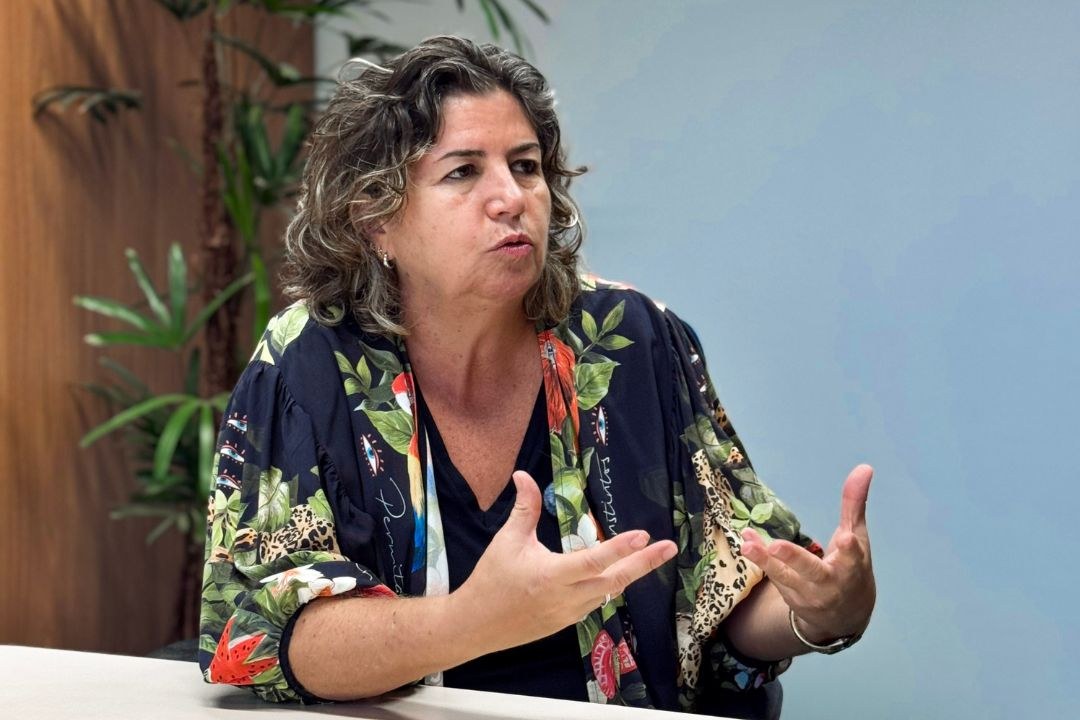COP30 must start on the “right foot”, says ambassador Liliam Chagas
In the days leading up to COP30, intense consultations on the work agenda took place between the presidency and the negotiating groups. The ambassador and chief negotiator, Ms. Liliam Chagas, says that early resolution of requests for new agenda items is essential

By Mayara Souto/COP30
On Monday, November 10, the 30th Conference of the Parties (COP30) to the United Nations Framework Convention on Climate Change (UNFCCC) will officially convene in Belém, Pará—with positive prospects for the adoption of decisions across a wide range of issues. Ms. Liliam Chagas, Director of the Climate Department of the Ministry of Foreign Affairs (Ministério de Relações Exteriores/MRE), made this assessment.
"The negotiations are expected to start on the right foot. During the Bonn session in June 2025 at the UNFCCC headquarters, a preliminary agreement was reached on several topics, including adaptation, just transition, climate finance, loss and damage, gender and climate, and the implementation of the first Global Stocktake of the Paris Agreement. The first stage of these multilateral negotiations was successful,” the ambassador stated in an exclusive interview with the COP30 website.
At the Bonn meeting, the priority agenda for the year, defined by the UNFCCC, was discussed for the first time. The outcome makes it possible to assess the degree of convergence among Parties and the potential for advancing the multilateral process. Other meetings have also contributed to the optimism surrounding COP30, including the Climate Weeks in Panama and Ethiopia, held in July and September, and an extended Pre-COP in October, in Brasília. This year, COP30 has over 140 items on its mandated agenda, three of which are considered priorities.
Priorities
In previous editions, there was a central theme guiding the climate negotiations. At COP30, the focus will be broader. “There isn’t a single headline issue at this Conference, but several. If properly managed, they can lead the climate regime from the rulemaking phase to the implementation phase—putting into practice what has already been agreed,” explained Ms. Liliam Chagas.
The ambassador stressed three major areas of progress during the negotiations: climate adaptation, just transition, and the implementation of the Paris Agreement’s Global Stocktake (GST).
Indicators will be defined for the General Climate Adaptation Goal to measure countries’ progress. “This measure aims to help implement climate adaptation policies, such as building resilient homes and organizing urban spaces protected from extreme events,” explained the ambassador.
The just transition aims to create a work program with guidelines for implementing policies to support people affected by the shift toward low-carbon economies. Liliam Chagas cites, for example, the retraining of workers to operate in sectors of the new economy. “Just transition means putting people at the center of climate action.”
Another priority is the implementation of the Paris Agreement’s Global Stocktake (GST). The first one took place two years ago and presented a series of recommendations to guide countries in addressing climate change challenges and tackling global warming. “These are recommendations to advance the energy transition toward renewable sources and to halt and reverse deforestation. We must continue to build on that,” she added.
How it works
Agreements at the COP are reached by consensus among the 198 Parties to the Climate Convention and the Paris Agreement. The goal is to make recommendations and decisions that will curb climate change. Negotiation groups are divided by regional and thematic coalitions. Around 4,000 observers are also present, including representatives of non-governmental organizations, universities, and research centers. "It's a complex system involving virtually the entire world and thousands of stakeholders," stated Ms. Liliam Chagas.
Parallel activities to the negotiations will also be decisive for the success of COP30. Among them is the Action Agenda, which will bring practical solutions in the areas of nature, technology, and finance. An example is the Tropical Forests Forever Fund (TFFF)—a groundbreaking financial mechanism aimed at rewarding countries that preserve their forests and prevent deforestation.
On Thursday, November 6, and Friday, November 7, at the Belém Summit, attended by heads of state, Brazil launched the Belém Call to Action ahead of the official opening of COP30. World leaders in Belém reinforced their commitment to multilateralism and the goals of the Paris Agreement. Several leaders emphasized the importance of accelerating efforts to limit temperature increases to 1.5 degrees and discussed strategies for expanding climate financing. The summit's role is to provide this political boost," he concluded.
English Version: Trad. Bárbara Menezes.
Proofreading by Enrique Villamil.
